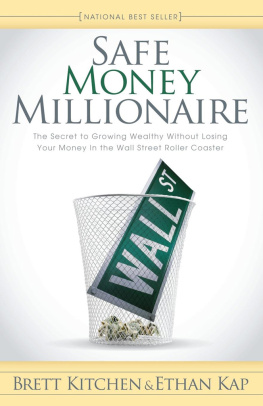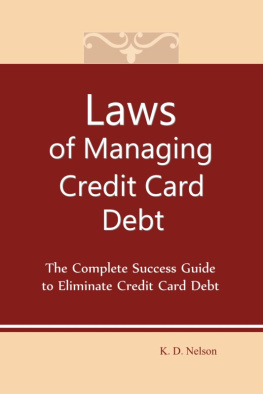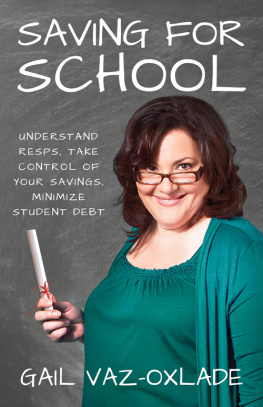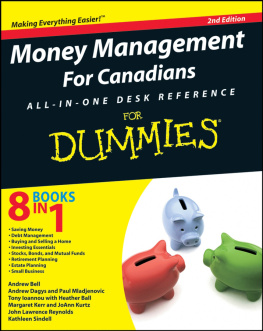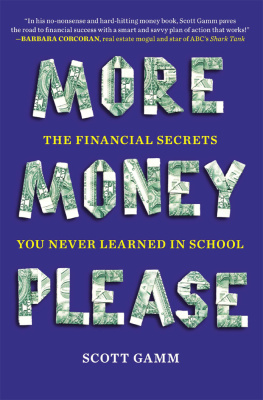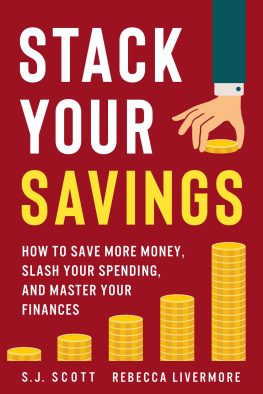Foreword: Score and Defend to Win the Game of Life
by Joe Moglia,
Chairman, TD Ameritrade
Ive always said, No one cares about your money more than you do, but when it comes to debt, its a different story. Debt collectors care deeply about your money, so deeply in fact that they will call you every single day if you cant pay them. If you dont know how to push back, gain control of the game, and execute a plan that is designed to get everything back on track, youre in trouble. The more time that passes, the more your debt compounds and the more aggressive the bill collectors become.
Its easy to get down on yourself when the debt piles up. Bad choices or bad calls (or bad luck) can make you desperate, particularly if you are trying to save a home you cant afford. Many people make very risky calls when in this situation, hoping that one big bet at Vegas or on Wall Street, or just one more credit card or loan, will win enough money to even the score. High-risk moves like these usually just make the matter worse.
In football, when you are third and long, a Hail Mary pass may not be a good call. When it works, it can become almost mythic; the vast majority of the time it falls incomplete or results in a turnover. Here, the successful Hail Mary is such a long shot, and the outcome of an incompletion or turnover is so negative, that the best play is sometimes the one that tends to not be all in. When we are talking debt, we could be talking about turning over your house, your car and other valuable possessions and assets to the creditors. This is exactly when you need a great team and an excellent strategy in order to execute your best play with precision. The ABCs of Money provides the resources and information you need to assemble your team and game plan.
No matter how difficult things are or how distraught you are, know that others have recovered and gone on to live fulfilling lives. The score right now doesnt have to define who you are or what you are capable of there is still plenty of the game left to be played. If you are in debt, now is the time to call a time-out, regroup on the sidelines and adjust your strategy.
A sustainable budget and debt reduction strategy are not all austerity measures, though, admittedly, it will involve hard choices and sacrifice. Natalie Paces Thrive Budget emphasizes getting the big ticket spending under control, so that you can have more money for fun, charity and investing all the things that make life enjoyable and put financial freedom back within reach. That may sound counter-intuitive, but a healthier bottom line and a healthier you are necessary to put everything back on track.
As Natalie points out, too many people think they need to pay down debt before they start investing and saving, which is like thinking you can win a football game without any offense. Offense scores; strong defense limits the other team from scoring on you. Compound your gains in a tax-protected retirement account starting with your first job, and youll have assets that multiply on the scoreboard for the rest of your life. Those points are yours to keep forever, no matter what, so its very important to start early.
Also, youll never score a touchdown if you cant run the 100-yard dash. So exercise your money muscles by auto-depositing 10% of your income into your retirement account first before paying any other bill. This is important for three reasons: 1) It increases your assets, which improves your assets to debt ratio; 2) If you arent doing this, youre just giving your retirement money to Uncle Sam to spend; and 3) In the worst-case scenario, you can borrow against your retirement assets. Once fiscal fitness is a daily habit, you sleep better, enjoy your money more, gain confidence, and find your debt to be a much smaller share of the final score.
The more you are worth and the larger your pool of assets, the easier it will be to negotiate better interest rates. High interest rates and penalties can bury you quickly, whereas low interest rates and affordable payments, combined with a sustainable budget and increased assets, can put your life back on track faster. If your debt is completely unmanageable, then you may need to put the unthinkable options on the table, and the sooner that you address this head-on, the quicker you can recover.
The ABCs of Money is not just a book for those who are already in trouble. College students need the information before they get their first credit card. Young adults need it before they buy their first home. Empty nesters can use the information to downsize to a sustainable lifestyle, before they get into trouble. Its never a good idea to tap home equity to bridge the gap between your expenses and your income, or to buy more home than you can afford, or to make only the minimum payment on a credit card.
Natalie Pace has been in the business of educating, informing and empowering the individual investor for more than a decade. She has made it her lifes mission to transform lives on Main Street. The ABCs of Money will teach you how to stop getting buried in debt and start scoring gains for the home team. The more you score, the more youll win financial freedom and enjoy your life.
Introduction: Stop Making Everyone Else Rich.
INTRODUCTION: Stop Making Everyone Else Rich.
Im going to share something very personal with you. I lost a friend to suicide. This was a number of years ago before the Great Recession. She was depressed pretty much her entire life, and a bad reaction to her anti-depressant drugs surely contributed to the suicide. However, the root of her dis-ease was that she made a number of horrible investments. She had pulled money out of a home that she owned free and clear, and lost most of that money by investing on the bad advice of an accountant friend who was getting money on the side for putting her in the deal. She also loaned money to a friend who was underwater on a mortgage. The loan was supposed to be temporary just for 30 days. Her friend ended up declaring bankruptcy, and, though he was paying her back, it was taking years to do it.


